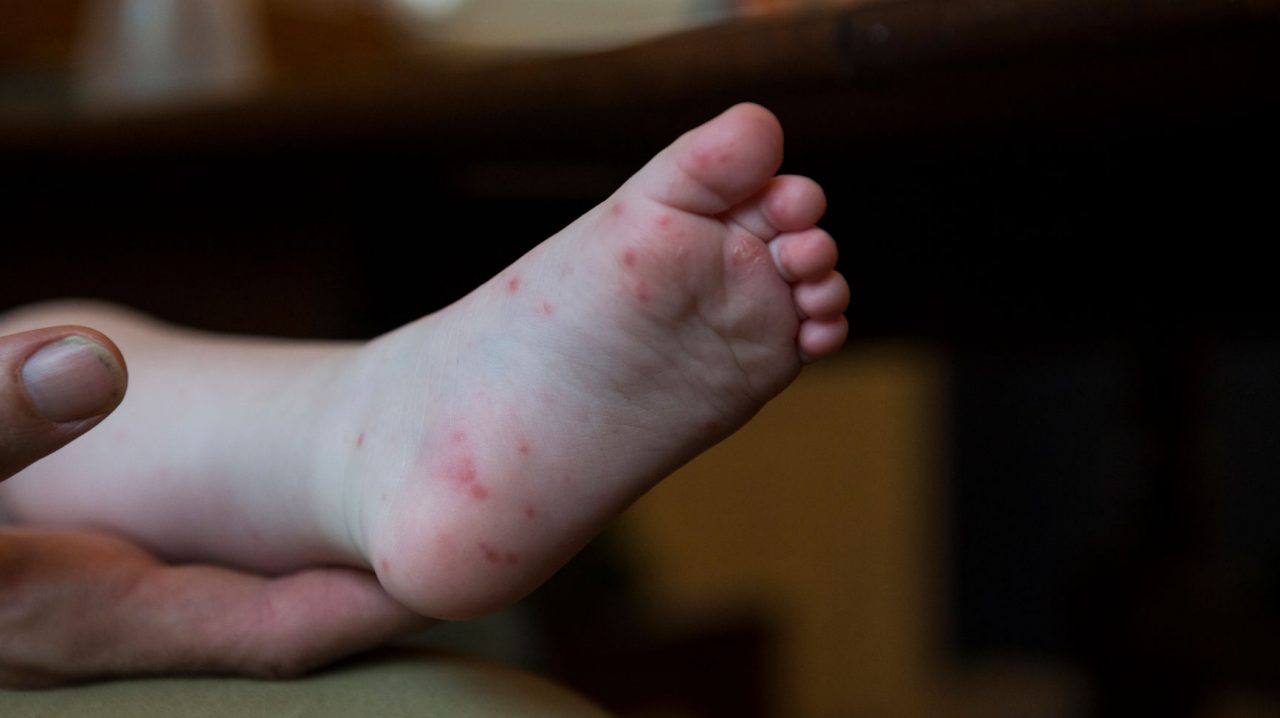Pediatric Infectious Diseases

Infections are common in childhood, when the immune system is developing. But some pediatric infectious diseases can become dangerous if not treated properly.
Germs, such as viruses or bacteria, can cause pediatric infectious diseases and illnesses. These infections can spread from person to person, either through direct contact, exposure to bodily fluids, or sharing objects a sick child has touched.
Children are still developing immunities that adults have, so they are vulnerable to many germs. Children are also prone to infection because they are not as careful about hygiene as adults, and small children become exposed to germs when they put their hands or objects in their mouths.
In daycare or classrooms, young children are often exposed to many infectious diseases. Luckily, most illnesses are mild and can be treated easily.
YOU MIGHT ALSO LIKE: Symptoms and Treatment of Whooping Cough
Because children’s bodies can react to germs in different ways than adults’ bodies, your pediatrician may recommend visiting a pediatric infectious disease specialist. Your child’s regular doctor can treat many common infections, or they may run their course over a few days.
As children get older, their immune systems become stronger and more resistant to infection. When that happens, they become sick less frequently.
Pediatric infectious diseases
Colds, strep throat, ear infections, pink eye, and stomach bugs are common pediatric infections. They can affect children of any age and often spread through classrooms or between siblings. They are uncomfortable but not particularly dangerous, unless your child becomes severely dehydrated or develops a secondary infection.
Prescription antibiotics can treat many bacterial infections, like strep throat and some forms of pink eye (or conjunctivitis). But antibiotics cannot treat viral infections, such colds and many stomach bugs, which will likely heal within a week.
Some pediatric infectious diseases primarily affect very young children. Rashes like roseola, fifth disease, and hand, foot, and mouth disease are the most common in children under age three.
While any infection has the potential to be dangerous, particularly if your child has a preexisting condition, some childhood illnesses are always dangerous. Diseases like meningitis, influenza, measles, and whooping cough can be life-threatening if not treated properly.
Vaccines can often protect your child against those diseases, but some children are still vulnerable. Some dangerous diseases, like whooping cough or certain forms of meningitis, may need immediate antibiotic treatment. Others, like influenza, become dangerous only if your child develops a high fever or becomes dehydrated.
When to seek care for your sick child
Although rest and fluids can resolve many childhood illnesses, others need a trip to the doctor. Some might even require hospitalization or chronic illness management.
The Boston Children’s Hospital, one of the top-ranked pediatric hospitals in the United States, recommends seeking medical care if your child has symptoms of a prolonged infection, such as:
- Pneumonia
- Whooping cough
- Meningitis
- Insect-borne illness, such as Lyme disease
- Enlarged lymph nodes
Other signs your child should visit the pediatrician, even for an infection that seems mild, include dehydration and refusal to eat. Seek medical attention if your baby has a fever of 101° or higher or an older child has a fever of 103° or higher. Call a doctor right away if your child has trouble breathing.
Your child should always see a doctor if:
- He or she becomes ill after traveling to another country
- Has a chronic medical condition
- Has a compromised immune system due to cancer treatment or premature birth
Those factors can make even mild infections dangerous.
Protecting your children from infectious diseases
Vaccines help children with healthy immune systems develop resistance to dangerous pediatric infectious diseases. Vaccines contain a small amount of a bacteria or virus, which prompts your child’s body to create antibodies without ever becoming sick. Antibodies protect against infection if your child comes in contact with that disease later.
The American Academy of Pediatrics (AAP) recommends a specific schedule of vaccines, beginning in infancy. The vaccines are spread out to create the strongest possible immunity within your child’s body. The AAP also provides comprehensive information on vaccine safety.
Vaccines have successfully protected against pediatric infectious diseases and reduced childhood deaths worldwide. Measles, for example, is one of the leading causes of death for children under 5, but vaccines helped decrease the number of children who died from the disease by 74 percent between 2000 and 2007.
In addition to getting your child vaccinated, teaching your child good hygiene habits is one of the best ways to protect against pediatric infectious diseases.
Remind children to always wash their hands after using the bathroom, sneezing, coughing, or touching their genitals. Always prepare and eat food with clean hands. Make sure older children do not share food or drinks with friends or siblings. Stop babies from putting shoes or other unsanitary objects in their mouths.
If your child does become sick, keep him or her away from other children until the illness has run its course.
Updated:
June 26, 2023
Reviewed By:
Janet O’Dell, RN